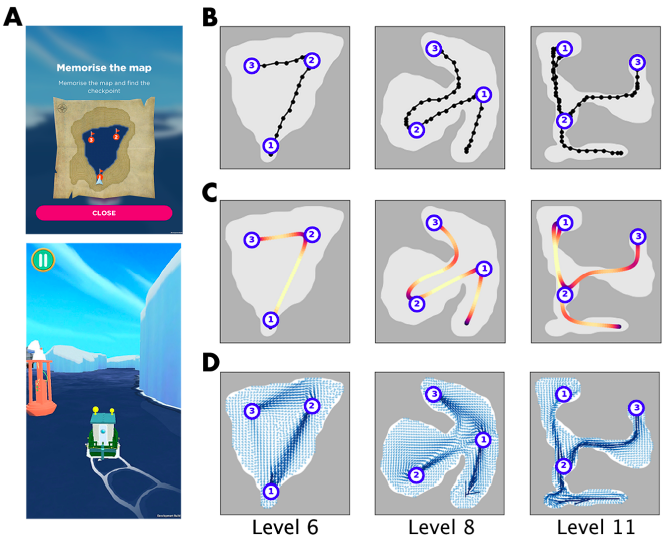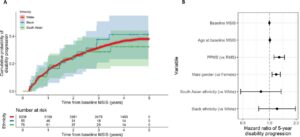
“Geometry of navigation identifies genetic-risk and clinical Alzheimer’s disease.”
Uzu Lim, et al. – University of Oxford.
Background: Lim and colleagues have previously shown that navigation time and path length in Sea Hero Quest (SHQ), a mobile game designed to provide new methods for identifying and tracking AD, could distinguish adults at risk for AD (according to APOE4 genotype) from other healthy adults.. Each level of the game requires players to memorize the location of checkpoints on a map, then navigate through a maze-like course to reach each checkpoint in the correct order without consulting the map.
This study: The authors introduced more detailed metrics for gameplay and compared data from patients with AD with data from healthy controls. While all metrics were highly effective in distinguishing patients from controls, the best metric for distinguishing APOE4 carriers from controls measured how greatly the subject’s velocity (speed & direction) varied from the benchmark norm at each point on the map.
Bottom Line: Handheld games such as SHQ can provide a simple, low-cost screening tool for AD in at-risk subjects.




